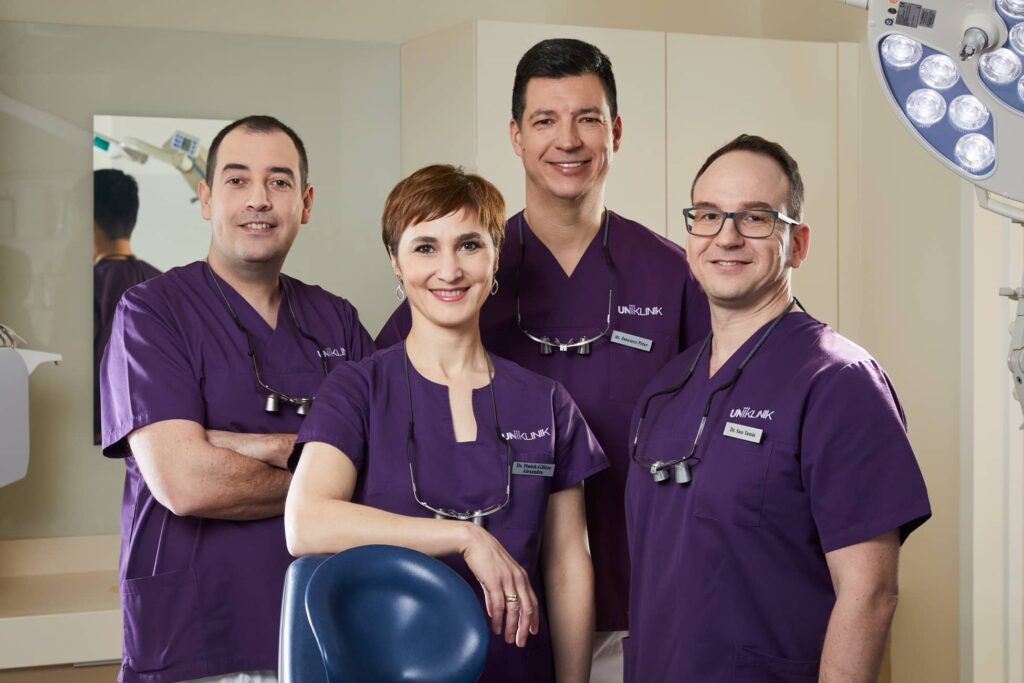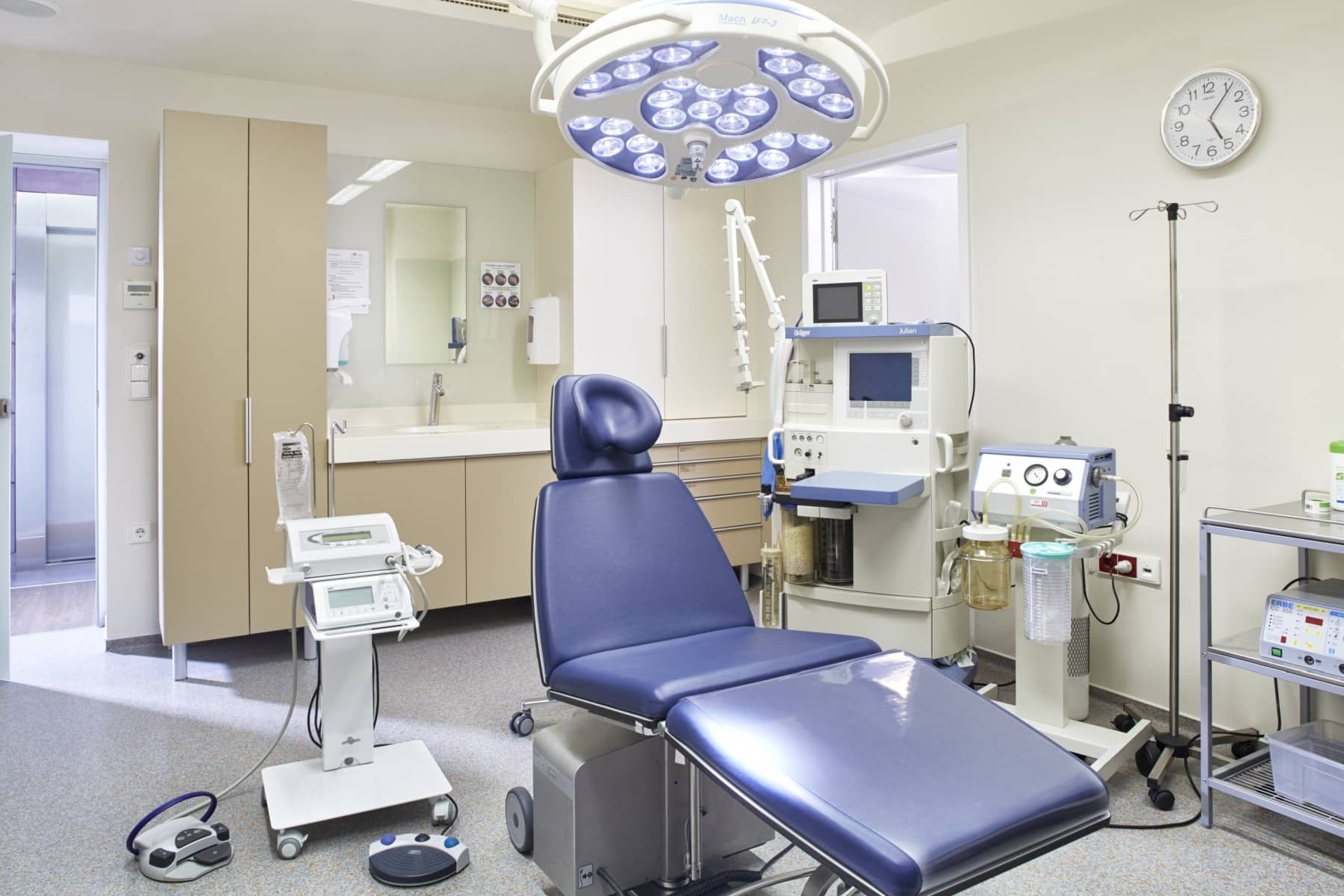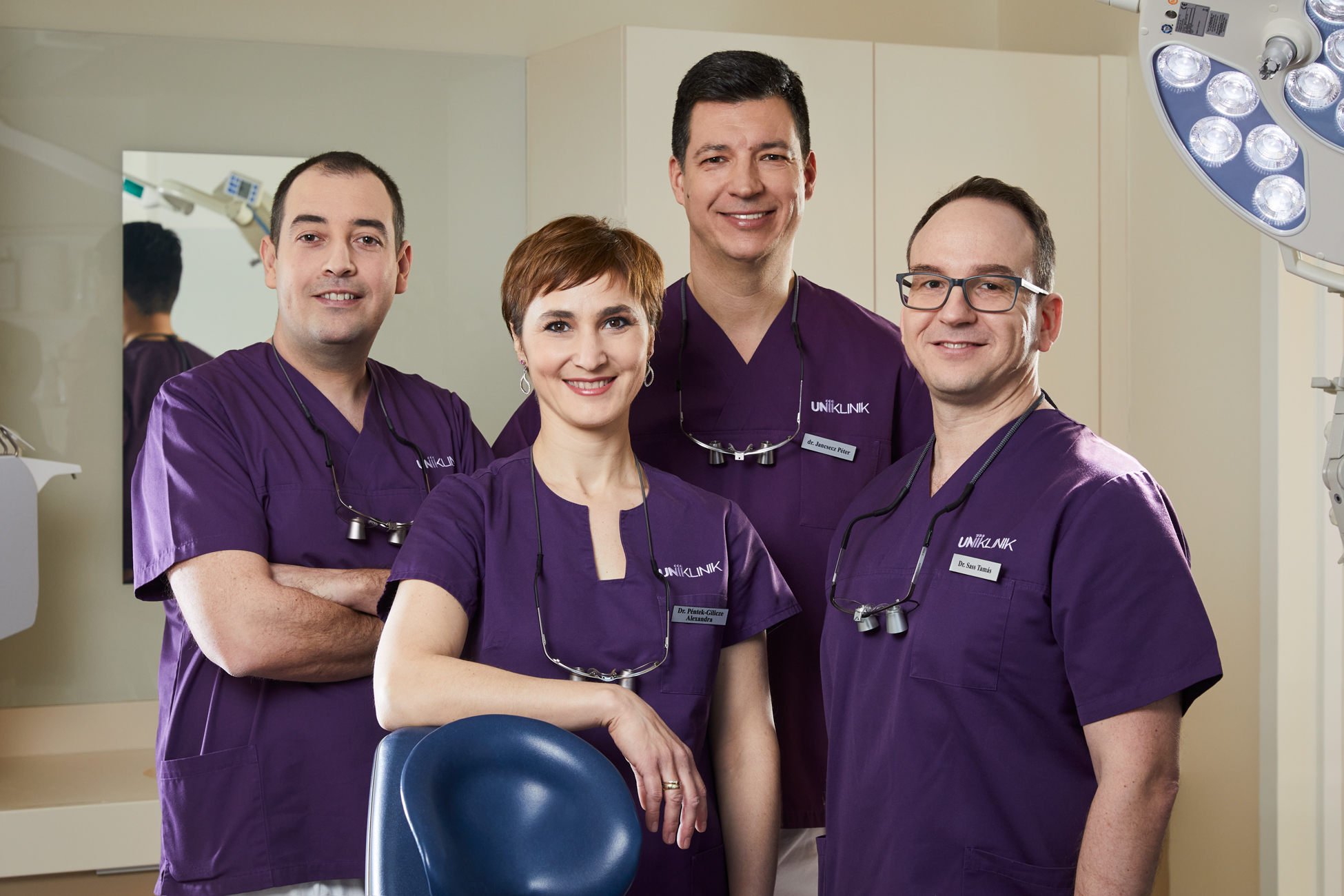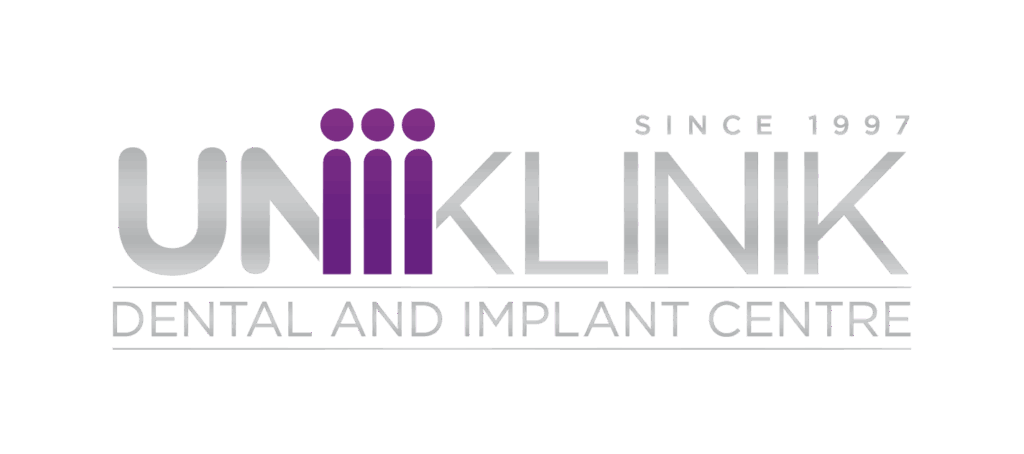
Oral Surgery
Oral surgery includes procedures performed using surgical techniques and instruments. These can be performed under local anaesthesia or, depending on the complexity of the procedure, under general anaesthesia. It is advisable to opt for an oral surgeon for complex tooth and root extractions, wisdom tooth removal, implant placement, bone grafting procedures, as well as for the treatment of oral lesions and infections.
What is oral surgery and when is it needed?
Many people still associate oral surgery with something frightening and painful. However, thanks to modern methods and state-of-the-art equipment, oral surgical procedures are now minimally invasive and completely painless. They are performed under local anaesthesia or, if necessary, under general anaesthesia.
What is the difference between a dentist and an oral surgeon?
Every oral surgeon is also a general dentist with additional specialised training. A dentoalveolar oral surgeon, or simply an oral surgeon, diagnoses, treats, and removes pathological conditions affecting the teeth, jawbone, and soft tissues.
When should you opt for an oral surgeon?
At Uniklinik Dental and Implantation Center, we have specialists in every field of dentistry. If you’re unsure which specialist to consult for your issue, our in-house team will direct you to the appropriate expert. Even during the initial contact, our patient coordinators will assist you in finding the most suitable specialist for your needs.
Our clinic was among the first to establish its own surgical unit, equipped with state-of-the-art technology to ensure optimal conditions for procedures ranging from minor interventions to complex oral surgeries.
For more intricate procedures requiring incisions and specialised equipment, it is essential to consult an experienced oral surgeon to guarantee the best possible outcome.

Problems and treatment methods which require an oral surgeon:
Tooth extraction: surgical removal of broken teeth, or teeth with a cracked tooth root or pain
If a tooth’s position is problematic or the surrounding tissues are inflamed, surgical intervention is necessary for its removal. Carefully exposing and cleaning the affected area helps prevent complications and pain. The procedure involves making an incision in the gum, separating the gum flap, and removing any remaining tooth fragments. The oral surgeon then cleans the wound and closes it with sutures. Thanks to this gentle surgical approach, many potential complications can be avoided.
Wisdom tooth removal
A wisdom tooth growing in the wrong direction or failing to erupt properly can cause significant issues and may even damage the entire dental arch over time. In such cases, wisdom tooth extraction may be necessary. A precise surgical procedure can help prevent pain and future complications.
Impacted tooth removal
An impacted tooth is one that has not erupted from the gum. Its removal is most commonly required for orthodontic purposes. Wisdom teeth are particularly prone to impaction, often remaining trapped in the bone or growing at an angle within the jaw. This condition can also affect upper canines.
Oral cyst removal
Depending on their size, cysts can be removed under local anaesthesia or general anaesthesia, and the procedure may be performed by a dentoalveolar or maxillofacial surgeon. Before the surgery, a CBCT scan is conducted to assess the exact size and location of the cyst, ensuring precise treatment planning.
Apicoectomy
Apicoectomy is an effective tooth-preserving procedure. It is performed to eliminate inflammation around the tip of the tooth root by removing the affected root end and surrounding inflamed tissue, preventing further infection. Before the procedure, the affected tooth must undergo root canal treatment.
Composite Bonding, Edge Bonding
Composite bonding is a minimally invasive cosmetic dental procedure that enhances the appearance of teeth by applying composite resin to their surface or edges (edge bonding). This technique is particularly effective for correcting minor imperfections, resulting in a more uniform and aesthetically pleasing smile.
Laser treatment of oral mucosal lesions
Laser treatment can promote the healing of mucosal wounds and help treat or remove certain abnormalities or lesions.
Implantation procedures
Implant placement can be performed under local anesthesia, but in more complex cases or when multiple implants are placed sedation may be required.
Bone grafting
Bone grafting procedures are necessary when we want to replace a missing tooth with an implant, but there is insufficient bone mass for the implant placement. Bone grafting can range from simple to more complex procedures, depending on the extent of bone loss in the specific area and what is most suitable for the patient.
Sinus lift
Sinus lift, or sinus floor elevation, is a specialized bone grafting procedure. It is necessary when an implant needs to be placed in the upper jaw’s lateral region, but the bone height in that area is insufficient because the sinus mucosa runs too low. During a sinus lift, the oral surgeon detaches the mucosa from the bone and uses bone graft material to increase the bone height to the necessary level for implant placement.
Oral Surgery Prices
Dentoalveolar oral surgery consultation (panoramic X-ray not included)
45 EUR
Maxillofacial oral surgery consultation (panoramic X-ray included)
115 EUR
Tooth extraction with local anesthesia
80 EUR
Tooth extraction with local anesthesia, surgical access
175 EUR
Tooth extraction under general anesthesia
based on the treatment plan
Surgical removal of wisdom teeth
175 - 300 EUR
Apicoectomy (root tip resection)
175 - 220 EUR
Removal of oral cysts
based on the treatment plan
Laser treatment of oral mucosa
50 EUR
Implant procedures
based on the treatment plan
What should I do after an oral surgery?
First and foremost, always listen to your dental surgeon so you can avoid complications after the surgery.
These are the most important things to keep in mind:
- The first 3 days after oral surgery are critical, so make sure to rest a lot and follow all the advice your dentist has given you.
- Be gentle with the wound—do not suck on it or rinse it!
- While the numbness lasts, avoid eating or drinking, as you may bite your lip, tongue, or accidentally swallow wrong.
- Until the stitches are removed (in 7-10 days), avoid putting pressure on the operated area, meaning don’t chew on that side.
- During your daily oral care routine, make sure to clean the operated area as instructed by your dentist. If for any reason this hasn’t been done, the general advice is to clean the area around the wound with a soft-bristled brush.
- After a tooth extraction, a blood clot will form in the wound—it’s crucial not to disturb or remove this clot.
- Avoid using a water flosser for 1 week!
- For the first 3 days, refrain from consuming dairy products (to avoid bacterial infections), as well as coffee, tea, and alcohol (due to their blood pressure-raising effects). Also, avoid smoking because of the toxic compounds in cigarettes. Stick to soft, dairy-free foods until the wound heals.
- Avoid overexerting yourself—take a few days off from sports, avoid bending over frequently, lifting heavy objects, and refrain from putting strain on your facial and jaw muscles.
- Depending on the area treated, your face may experience some swelling. To prevent and manage this, it’s recommended to apply cold compresses.
- Apply the cold compress to the swollen areas for 10-15 minutes every hour, but be careful not to cause frostbite. It’s best to use ice gel or an ice pack wrapped in a towel for this purpose.
It is important that if you notice any irregularities, you contact your doctor as soon as possible. Also, make sure to attend the follow-up appointment and stitch removal at the scheduled time.
Experienced oral surgeons at Uniklinik Dental Center
Uniklinik Dental and Implantation Center is located in Örs vezér square, in a frequented location in Budapest. Our team includes specialists in every field of dentistry:
- ALEXANDRA GILICZE
Dentist, dentoalveolar oral surgeon - PÉTER JANCSECZ
Specialist in oral and maxillofacial diseases, dentoalveolar oral surgeon - BALÁZS ZÁHONYI
Medical Director, dentoalveolar oral surgeon - DR. TAMÁS SASS
Specialist in oral and maxillofacial diseases, dentoalveolar oral surgeon, maxillofacial surgeon



